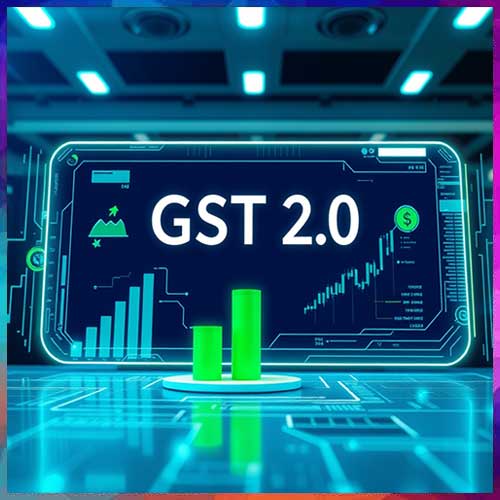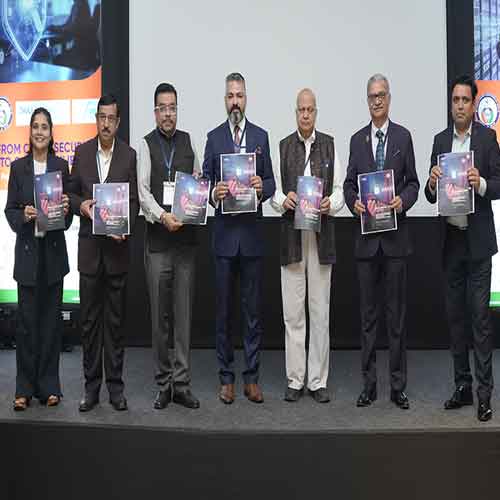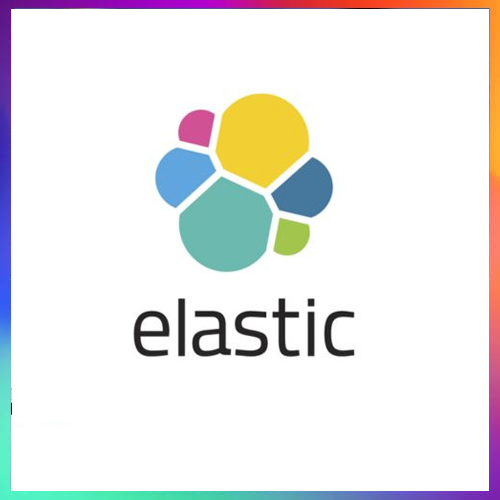
In a landmark move on September 3, 2025, India’s Finance Minister, Nirmala Sitharaman, spearheaded the most sweeping overhaul of the Goods and Services Tax (GST) in its eight-year history. The 56th GST Council meeting culminated in a radical simplification—from the existing four-tier system to a streamlined two-rate framework of 5% and 18%, coupled with a 40% slab targeting “sin” and luxury goods. The reforms, set to take effect from September 22, coincide with the commencement of Navratri and are designed to bolster consumer sentiment ahead of the festive season.
Daily essentials—including packaged foods, toothpaste, hair-care products, and select medicines—have been slashed to a 5% GST, while ultra-essential items such as UHT milk, paneer, staple breads (chapati, roti), and critical cancer drugs have been exempted altogether.
As part of the overhaul, consumer durables and automobiles are being made more affordable—with TVs, air-conditioners, refrigerators, washing machines, and small cars or motorcycles now taxed at 18%, down from the earlier 28% bracket. Electric vehicles retain their favorable 5% GST rate.
While the government anticipates a revenue loss of around ₹48,000 crores (approximately USD 5.5 billion), it views the reform as fiscally sustainable—and a strategic lever to temper inflation (potentially by up to 1.1 percentage points) and boost consumption.
These reforms, commonly dubbed "GST 2.0," have been lauded as an “early Diwali gift”—earning praise across social media for easing the tax burden on households and simplifying compliance for businesses alike.
 The GST reforms elevate the quality of life for millions of Indian households
The GST reforms elevate the quality of life for millions of Indian households
Pankaj Rana, Chief Executive Officer, Hisense India
“The government’s recent GST reforms on televisions and air conditioners come at a critical juncture. By reducing price barriers, these reforms enable a larger and more diverse consumer base, especially in emerging markets and Tier-2 and Tier-3 cities, to access high-quality, energy-efficient products. At Hisense India, our focus has always been to deliver global innovation at prices that resonate with Indian households, and this move makes our advanced range of our TVs and home appliances even more accessible ahead of the festive season, when families are looking to upgrade their homes. Ultimately, this reform not only improves affordability but also elevates the quality of life for millions of Indian households."
 The new GST revisions are a progressive step for India’s technology ecosystem
The new GST revisions are a progressive step for India’s technology ecosystem
Aditya Khemka, Managing Director, CP PLUS
“The recent GST revisions are a progressive step for India’s technology ecosystem. Rationalizing taxes on consumer electronics, critical components like silicon wafers, and logistics will help reduce the cost of hardware that powers modern surveillance infrastructure, making advanced security solutions more accessible to businesses, housing societies, and urban centers. While adjustments may be needed on account of higher GST on outsourced job work, the overall direction supports affordability, faster adoption, and strengthens the government’s vision of Atmanirbhar Bharat by boosting local manufacturing and value creation. For the surveillance industry, this creates an important opportunity to accelerate organized deployment and deliver safer, smarter communities across the country.”
 The revision in GST rates will stimulate economic growth
The revision in GST rates will stimulate economic growth
Kapal Pansari, Managing Director, Rashi Peripherals Limited
“We welcome the Government’s strategic revision of GST rates aimed at providing relief to both citizens and industries. This is a progressive step towards stimulating economic growth. The revision in GST rates is poised to boost consumption by enhancing the purchasing power of consumers. For businesses, the revised rates will help streamline operations, make goods and services more accessible, generate revenue, and ultimately support the economy. This move reflects the Government’s strong commitment to boosting economic growth, and we are optimistic about the positive ripple effects it will have across industries.”
 More clarity in implementation will be key to fully leveraging these reforms
More clarity in implementation will be key to fully leveraging these reforms
Ravi Kunwar, VP and CEO, HMD India & APAC
“The latest GST reforms mark a constructive development for diverse industries across India, with the Council’s move to consolidate rates and streamline registration and refund processes driving substantial change in business operations nationwide. By simplifying the tax structure into clear 5% and 18% slabs, these reforms are set to promote consumer savings and create more disposable income, delivering timely relief and positive sentiment ahead of the festive season.
These measures reflect India’s continued pursuit of regulatory ease, and their true value will be seen in how effectively benefits extend to both consumers and industry progress—particularly in manufacturing and technology. For HMD and the broader telecom sector, we expect improved operational efficiency, greater cost predictability, and sustainable growth, reinforcing our commitment to supporting India's digital transformation and the vision of Viksit Bharat@2047. Going forward, clarity in implementation will be key to enabling all stakeholders to fully leverage these reforms.”
 The new GST rate cuts will empower the entire electronics industry
The new GST rate cuts will empower the entire electronics industry
Anurag Sharma, Managing Director & CEO, AKAI India
“The new GST rate cut from 28% to 18% is a progressive reform as it will make electronic items like televisions, air-conditioners, and other appliances significantly more affordable for millions of Indian households. The 18% GST bracket enables consumers to save around ₹3000 to ₹5000 on major appliances and encourages them to fulfil their needs this festive season. This bold step will boost customer demand in tier II and III cities, essentially. The new GST rate cuts will also empower the entire electronics industry and fuel its momentum. Additionally, the industry will be able to enjoy faster transit times across state borders, enhanced overall operational efficiency, and reduced logistics costs.”
 The new GST rates to promote wider adoption of digital technology solutions
The new GST rates to promote wider adoption of digital technology solutions
Rajeev Singh, Managing Director, BenQ India
"The recent GST reform is a decisive move toward simplifying and streamlining the tax structure for the electronics industry. By consolidating the tax slabs into a clear and predictable two-tier system, it reduces compliance complexities and fosters a more transparent business environment. This reform is set to benefit manufacturers, retailers, and consumers by lowering costs across the supply chain, encouraging competitive pricing, and stimulating demand for a wide range of electronic goods. Moreover, it supports the government's vision to enhance local manufacturing and innovation, providing a strong foundation for sustainable growth in the sector. Notably, the reduction of GST rates on products such as monitors and projectors further eases costs for businesses and educational institutions, promoting wider adoption of digital technology solutions across India."
 A reflection of greater consumer confidence and demand creation
A reflection of greater consumer confidence and demand creation
Ravi Agarwal, Co-Founder and Managing Director, Cellecor
"We welcome the recent GST reforms as a decisive step towards creating a more level playing field and fostering growth within the consumer electronics and appliances industry. The rationalization of GST rates to a uniform 18% on products such as TVs, monitors, air conditioners, and dishwashers is a particularly positive move. It not only enhances affordability for Indian households but also simplifies compliance and operational efficiency for manufacturers and brands like Cellecor.
Equally significant is the alignment of GST on lithium-ion batteries at 18%. This will have a direct impact on the ecosystem of wireless, portable, and smart devices by reducing input costs across the value chain. For a fast-growing Indian brand like Cellecor, this encourages us to accelerate innovation in smart gadgets and energy-efficient products while keeping them accessible to a wider base of consumers.
Overall, these reforms are a timely enabler for greater consumer confidence and demand creation. They strengthen the foundation for digital adoption across urban and rural markets alike, supporting our long-term vision of bringing quality, affordable technology to every Indian family."
 A fair GST framework to encourage more foreign investment in India’s data economy
A fair GST framework to encourage more foreign investment in India’s data economy
Amin Habibi, Co-Founder and COO, VergeCloud
“At VergeCloud, we believe rationalizing GST for digital infrastructure will not only accelerate innovation but also strengthen India’s position as a global hub for sovereign technology. Lowering the burden on cloud and CDN services can directly reduce the cost of doing business for startups, MSMEs, and enterprises that depend on reliable digital infrastructure. A fair GST framework would also encourage more foreign investment in India’s data economy, promote local R&D, and align with the government’s vision of Digital India."
 A big enabler to building a robust manufacturing ecosystem
A big enabler to building a robust manufacturing ecosystem
Girish Tanti, Co-Founder & Vice Chairman, Suzlon Group
“The recently announced GST reforms by the government shall provide an immediate boost to various products and services across industries. The fiscal nudge from 12% to 5% for renewable devices shall help in accelerating adoption of renewable energy and building a robust manufacturing ecosystem toward achieving our National goals of NetZero and Atmanirbhar Bharat set out by our Honorable PM.”
 A welcome step during the festive season
A welcome step during the festive season
Arjun Bajaj, Director of Videotex
"We welcome the government’s decision to reduce GST on TVs from 28% to 18%, a long-standing demand of the industry. This move will not only boost sales but also encourage consumers to upgrade to larger screen sizes. With tax cuts on other items as well, disposable incomes are set to rise, enhancing buying power and supporting overall economic growth. Announced during the festive season, the step is especially impactful as it makes advanced home entertainment more accessible. We foresee a clear shift in demand from 32-inch models to popular sizes like 40, 43, and 55 inches—expanding the market and improving consumer lifestyles."
 A signal to India’s intent of making EVs mainstream rather than niche
A signal to India’s intent of making EVs mainstream rather than niche
Vasudha Madhavan, Founder & CEO, Ostara Advisors
“The government’s decision to keep all EVs—whether mass market or luxury SUVs—under the 5% GST slab without any additional cess is a progressive step that will have a significant impact on adoption. By removing the tax disparity between smaller EVs and larger SUV models, the policy creates a level playing field, improves affordability, and encourages greater consumer choice. On the other hand, the move is expected to keep upfront costs low for customers while accelerating market growth. This will not only boost sales across segments but also reinforce confidence among manufacturers and investors in India’s long-term commitment to sustainable mobility. Importantly, it will also encourage our automotive component manufacturers to build a full-fledged EV component ecosystem in India. Ultimately, it signals India’s intent to make EVs mainstream rather than niche.”
 The new reforms will directly contribute to India’s GDP growth
The new reforms will directly contribute to India’s GDP growth
JP Chalasani – CEO, Suzlon Group
“We deeply value MNRE efforts and their continuous commitment to advancing clean energy. The GST reduction from 12% to 5% is a decisive step that will significantly reduce power tariffs, making clean energy more affordable for consumers and improving project economics for developers. In wind energy, lower taxation on turbines, nacelles, blades, and balance-of-plant components will cut capital intensity and the levelized cost of energy — enabling faster commissioning, stronger investor returns, and greater capacity additions. Reforms like this go beyond the energy sector; they stimulate domestic manufacturing, create thousands of jobs, and directly contribute to India’s GDP growth.”
 A boost to customer trust and support to nutritious diets
A boost to customer trust and support to nutritious diets
Bhuvaneswari Nara, Vice Chairperson and Managing Director, Heritage Foods
"The GST recalibration for India’s dairy industry is very welcome and timely. Moving everyday staples like paneer to the 0% slab, and ghee, butter, and cheese from 12% to 5%, will have a broad impact, as these categories touch nearly 100% of Indian households.
Not only do these essentials lighten the monthly grocery bill, but the reforms also help high-quality, branded products compete effectively with unorganized and unregulated producers. This shift strengthens formal supply chains, builds consumer trust, and supports more nutritious diets. Dairy products such as paneer, butter, and ghee are staples in every Indian kitchen, yet rising prices have forced many families to switch to cheaper substitutes that lack similar nutritional value.
In light of this, we at Heritage Foods are happy to announce that we shall be passing on the full benefits of these reforms to our consumers, helping boost the festive mood in our markets. We are also working with our partners and distributors to manage the transition smoothly and will be looking to ramp up capacity to capture the expected market expansion. We are also working closely with our distributors and retail partners to manage the transition smoothly and effectively."
 A timely and much-needed boost for the real estate sector
A timely and much-needed boost for the real estate sector
Snehdeep Aggarwal, Founder & Chairman, Bhartiya Group
"The reduction of GST on cement, steel and related construction materials is a timely and much-needed boost for the real estate sector. Lower input costs will allow developers to invest more in superior design, modern amenities, and sustainable practices, while ensuring greater affordability for homebuyers. Corporate real estate too will benefit from improved cost efficiencies, making office and commercial projects more attractive for businesses and investors. With more disposable income in the hands of customers, this reform is set to accelerate demand and strengthen transparency across the industry.”
 GST 2.0 reforms to significantly transform the corporate commute ecosystem
GST 2.0 reforms to significantly transform the corporate commute ecosystem
Sriram Kannan, Founder & CEO, Routematic
“The GST 2.0 reforms will significantly transform the corporate commute ecosystem in which Routematic operates. By reducing GST on commercial vehicles from 28% to 18%, more driver-partners will find it viable to purchase ICE vehicles at lower EMIs boosting their earnings and livelihood security. For Routematic, this directly translates into a larger and more reliable supply pool of vehicles, enabling us to offer corporates more affordable and scalable commute programs. At the same time, retaining the 5% GST rate on electric vehicles ensures that EV leasing remains attractive for India’s sustainability goals. However, for EV adoption to truly accelerate, these tax incentives must be complemented by rapid expansion of charging infrastructure.”
 New reforms to have a huge positive impact on consumption and boost production
New reforms to have a huge positive impact on consumption and boost production
Subroto Bose, Partner, ASA & Associates
"The recommendations on tax rate changes by the GST Council will have a huge positive impact on consumption and boost production. The 3-rate slab structure brings much needed clarity especially to foreign investors interested in the India growth story. Simplified GST registrations for small and low risk businesses and sanction of risk-based provisional refunds will reduce administrative bottlenecks and facilitate trade."
A big encouragement to India’s energy transition goals
Rana Dutta, Senior Vice President CNG Marketing & Business Development, THINK Gas
"By bringing down the GST rate on commercial vehicles where CNG contributes significant volume from 28% to 18% and CNG cars under 1200 cc from 29% (inclusive of cess) to 18%, the GST Council has created a strong incentive for customers to choose environment-friendly alternative. This reform is expected to significantly boost demand in the automobile sector while accelerating the adoption of natural gas as a preferred fuel, given its affordability and efficiency. This aligns well with India’s ambition to increase the share of natural gas in the energy mix from the current 6% to 15% by 2030, thereby reducing carbon emissions and improving air quality. The natural gas sector is poised to support customers who will be taking the decision to adopt CNG fuelled cars, SCVs, LCVs and Buses with strong and expanding infrastructure across India. This move will also encourage investments and support India’s energy transition goals. We see this as a measure that will promote sustainable mobility and ensure economic growth through higher CNG powered vehicle penetration.”
 GST rationalization, FDI boost set to transform India’s healthcare
GST rationalization, FDI boost set to transform India’s healthcare
Suneeta Reddy, Managing Director, Apollo Hospitals Enterprise Limited
"We welcome the rationalization of GST, which comes as a corollary to the tax cuts and 100% FDI in insurance announced in the Union Budget earlier this year. Together, this provides a valuable platform to make healthcare more accessible and affordable. The reduction in GST rates of life-saving and other drugs, and the standardization of GST for consumables are very positive steps both for the patient and for the sector. India’s aspiration for more health infrastructure will be well-served with the reduction in GST for construction inputs like cement, fly ash bricks, marble and granite. Above all, we believe this will enable many more Indians to purchase health insurance and insurers will serve a larger insured pool. This will truly unlock access to high-quality healthcare for India."
 GST relief on premiums to accelerate insurance penetration nationwide
GST relief on premiums to accelerate insurance penetration nationwide
Rakesh Goyal, Director, Probus
“The GST relief on individual health and life insurance premiums goes far beyond numbers, it is a decisive step towards making insurance more accessible and India more protection oriented. For decades, affordability has been one of the biggest barriers to insurance penetration, and by easing the cost burden, this move directly addresses that concern. Policyholders will experience immediate relief, which we believe will encourage wider insurance uptake across households and middle-income segments and improve persistency among existing customers.
At the same time, as an industry we must acknowledge that the absence of input tax credit could add cost pressures on insurers. However, with greater volumes and wider adoption, the long-term benefits far outweigh the short-term challenges.
What we are witnessing is not just a tax change, this reform has the potential to significantly accelerate the journey of insurance from being a product of choice to a product of necessity.”
See What’s Next in Tech With the Fast Forward Newsletter
Tweets From @varindiamag
Nothing to see here - yet
When they Tweet, their Tweets will show up here.





























